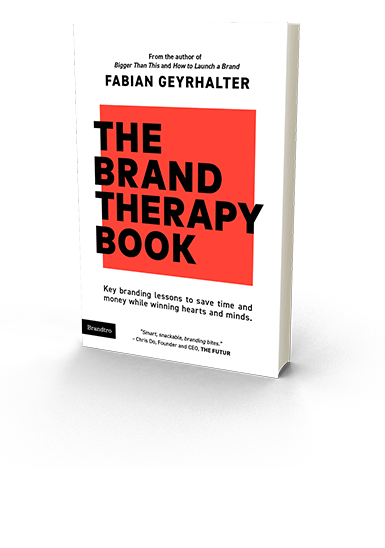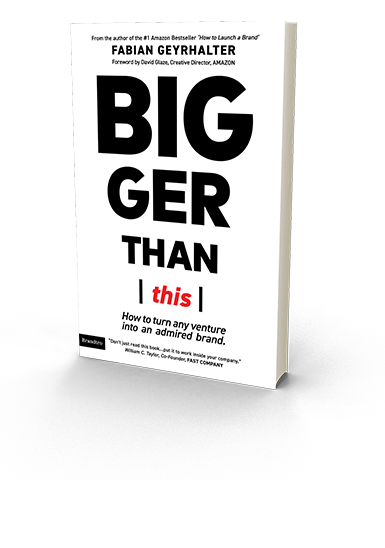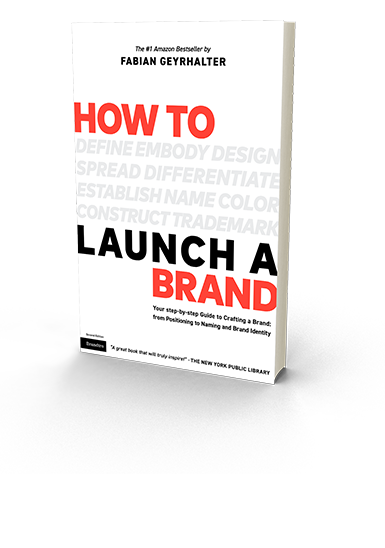Tag Archives: startups
How To Avoid Your Uber Brand Mishap
Ride-hailing app Uber had a rough couple of months, to say the least.
I for one have been an über Uber brand advocate from day one and have had a lot of defensive conversations (with cab drivers, my parents, and other naysayers alike) on behalf of the brand I so loved.
Loved, because there is love no more.
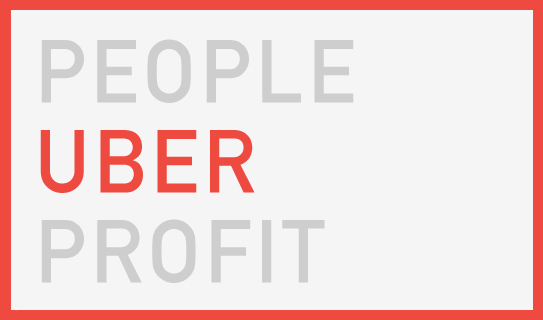
The other week, as I was on a flight to Austin to hold one of my many Resonaid brand foundation workshops with a startup, I was contacted by the Los Angeles Times on my thoughts about Uber’s brand troubles. I conducted the interview from the plane, which made me feel uber-productive (and quite special, I must admit), and was greeted by the following ginormous quote in the LA Times later that very same day:
One thing leads to the next and I was interviewed by Canadian TV station CBC the day upon my arrival back in L.A. on the same topic (you can read that story here). Now that I am rather well-versed on the subject of Uber brand bashing (*sigh*), I want us all to understand the one fundamental key branding lesson from their mishap so your startup can avoid following Uber’s path:
Uber came in to disrupt a commodity and monopoly service, the cab industry. Today it may be taking their place and share the same fate with the very companies that used to be the enemy. By focusing solely on the next round of funding and speedy economic growth, the company seems to have left behind what matters the most, what literally drives their business: People.
First, the people who actually make Uber a functional business model, its drivers. Continuously lowering of wages and surpassing employee laws turned into a burden for the early Uber drivers, the ones that actually loved the brand the most, as they are now being forced to leave Uber or work hours that may seem unsafe for drivers and passengers alike.
The effect this has on passengers has been noticeable over the past 6 months: The brand experience of a cool, novel, inexpensive service in nice cars with fun and educated young drivers that cared about making your ride enjoyable changed completely. Today, the only brand attribute left is ‘cheap’ and the Uber brand took a massive hit because of greed and a one-track mind that left the life force of a functioning company behind.
New ride-hailing services that care about more than simply profit (ranging from a company offering female drivers for female riders – to a nonprofit that pays its drivers well) will gain momentum quickly as the Uber brand perception is changing with scandals continuing to hit the mainstream press.
Uber may be getting disrupted by empathy.
The key takeaway for your startup is to never sway away too far from the one key brand rule Uber broke by their single-minded product rather than brand focus:
People first and profit will follow.
Startups: Stay Human
Yes, of course, all of the above is why we are all interested in startups, but the real reason why I dedicated the majority of my professional life to working with Founders comes down to something much more basic: Startups are human.
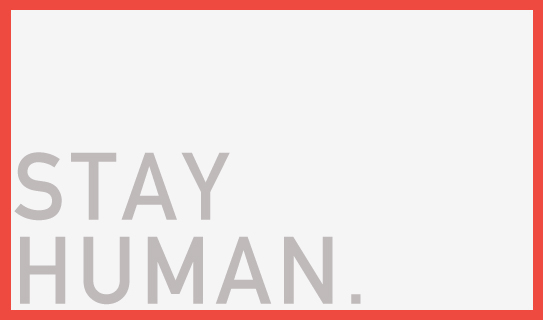
The beauty of purely human business interactions is lost in the vast majority of large companies I worked with over my career. I only get to feel them at the local Farmers Market and in the startup community. Not knowing is a virtue, learning a given, sharing a must. As startup Founders gain success, I urge you, do not lose the magic you possess, the magic you enjoy so much while being amongst yourselves, that magic of not only being human, but acting human.
CATEGORIES: Blog Startup Advice
Branding Is What Happens To You While You’re Busy Making Other Plans
The expression life is what happens to you while you’re busy making other plans was penned in the 50’s. Most of us know the phrase thanks to John Lennon, who adopted it in the magnificent song ‘Beautiful Boy (Darling Boy)’ from 1980, hence making it his. He was the real Mad Men, wasn’t he? Copy, paste, claim, fame. OK, we all know that there was a lot more magic to his genius. Back to another genius who is crafting things: You.
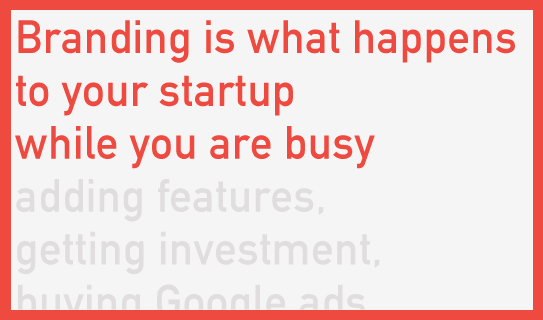
You, as a founder, are so busy doing and planning that you have lost touch with the genius, the beauty, the joy inside that very thing that you are so busy creating. Stop and smell the roses. I mean, really smell them, for once, or once again. You might realize you don’t even know what the beauty of it all is anymore, so you will have to step back to re-define what it means to you; now, today, not when you first had the idea and started the avalanche with a snowball.
Smelling the roses will re-birth your venture’s branding process. Define what kind of roses they are, the beauty of them with all their perfect imperfections (another great songwriter’s lyrics, but not John Legend’s words either), how they smell and how you had imagined them to smell. Without you being overly aware of it (or noticing it for the first time), how could you remind your teammates (who are busy building the brand while you are reading this) of the brand essence, the scent your potential customers are longing to smell?
Once you stopped and resurfaced and redefined, or simply reenergized that very reason behind the madness that is your venture, you will tell them. They are ready to hear it, they love hearing soulful words directly from the source. Tools create followers, you create believers.
P.S.: I will partake in a panel discussion at Techweek LA on November 20th. Come by or stream it live if you want to continue this conversation, or opt out and ‘be busy making other plans.’
Walking The Talk In Silicon Valley – What Mattered At The 2014 LAUNCH Festival
I spent the first half of my week in the land of the nouveaux riches and the fail-backwards-wannapreneurs, the starving startups and the über (Pun!) rich venture capitalists, the land of income gaps and the building of bridges for such; it was an experience that was well worth having and well worth sharing.
Jason Calacanis is a VC mogul, an entrepreneur, and blogger, but most important, he is a man with an opinion that he is happy to share, like most of his big-player pals. Jason built an empire, and for 3 days a year he opens it up to us. Startups attend for free, the rest of us pay our dues. Startups spend the days prior inventing and building, VC’s meeting, and then in a grande finale they sign checks. Just like the one for $50,000 to two young adults from Warsaw who looked like deer in headlights on stage, not knowing what just happened to them over the past few days; from arriving, to forming a company, to getting checks from Jason and the (rather mesmerizing) leader of the cult-VC pack, Mark Cuban (Dallas Mavericks, Shark Tank Etc) with 9,000 attendees watching their acceptance speech. They told us they will now move to the US.
On the same day that a Google glasses wearing female was attacked outside a bar (‘Glassholes’ they call them) and Mt. Gox came tumbling down, I saw a shocking amount of both, ladies wearing Google glasses and Bitcoins being freely distributed. Inside the conference grounds, one can’t help but contemplate about how the inside connects to the outside, if some of the tech ideas will connect with anyone but the developers who created them, if some of the checks written will help or hinder the growth of those companies, if the billionaires use the tech for good movement like Fortune 500’s used green-washing. Yet Marc Cuban put it the best way, and I drank his thoughts like Kool-Aid; being asked about what makes him happy, he surprisingly mentioned his role on the popular TV show Shark Tank, which could be seen as a total sellout (not that Cuban needs the implied money), he said (I am paraphrasing): “Shark Tank reaches whole families, kids to grandmas, generations of all income levels. They start talking about entrepreneurship, about ideas and how they can turn into money. The show brings the American Dream back up front and center within our society at large. It makes me proud and happy.”
At Launch you will witness a spirit of anything is possible in a fast paced environment that is comparable to a campground smack in the center of a Formula 1 race, only that hot dogs are being switched out with farm-to-table food fare and the exchange of High Fives with that of large checks. Here are the companies that took the stage at Launch, which made the biggest impact on me, and I predict will make the biggest on mankind in the coming years (None were part of the Launch competition, its winner was Connect, which is quite cool as well):
1. Google’s Ara Phone
Of all the companies you pick Google? Really? Indeed, my thoughts exactly, but stay with me here: Google showcased their Ara phone (used to be Motorola‘s prior to the acquisition) and it will disrupt entire segments and industries. Modularity meets 3D Printing, Open Platform meets Affordability, the list goes on and on. Already a staple of internet phone geek chatter over the past months, it was astonishing to see the Ara prototype being assembled on stage, click by click, snap by snap. A vision turned reality. Developer Conference is taking place this April and by next year’s Launch conference we will all be sporting one, but none will be alike.
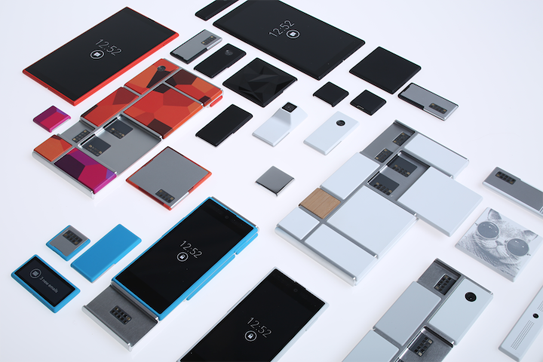
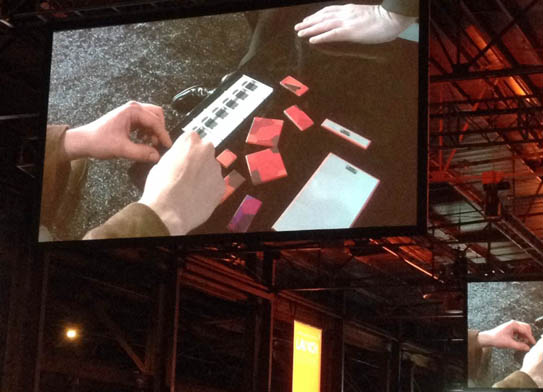
2. The Cardiovascular Innovation Institute’s 3D Printed Heart
We can 3D print a superior human heart. And that is ‘the easiest organ to bioprint‘. You should be able to get yours within the next 5-10 years. Mind, blown. The app startups that took the stage thereafter suddenly impressed less by the minute.
3. Knightscope’s K5 Autonomous Robot
He predicts and prevents crime. And he’s scary to your privacy, but there is no doubt you will meet K5 soon, and he might just save your life. Lose your privacy, have your life saved. A risk worth taking?
Below you can see a graphic showcasing 20 of the 40 companies that launched at the festival this year and (if you have really good eye sight) the money raised by attendees in the short 3 days for each, outside of the added funds during the final ceremony. Very few of them will have lasting impact, but as Jason put it prior to announcing the award winners, no one, not even the judges really know who of them will turn into the next WhatsApp, SnapChat…or Dropbox, which was not deemed worthy an award at Launch a couple of years back.
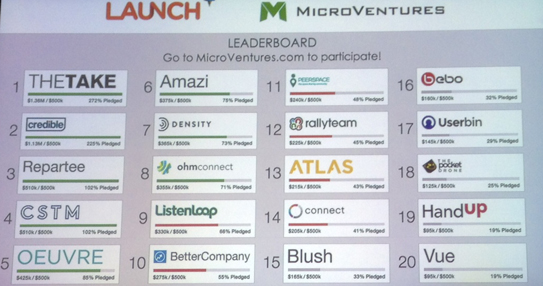 Launch walked the walk, the money talked the talk, and all of it happened while the many homeless outside the venue had no idea that they too will see the benefits of what Jason has put together. They just saw the Teslas pulling out of the lot.
Launch walked the walk, the money talked the talk, and all of it happened while the many homeless outside the venue had no idea that they too will see the benefits of what Jason has put together. They just saw the Teslas pulling out of the lot.
See you next year at Launch. Call me on my Ara phone to Connect.
CATEGORIES: Blog Startup Advice
Maximize Your Tagline When Introducing a New Product or Service
Just Do It? Not so fast we say.
When introducing a disruptive, innovative or different type of product or service to the market, your tagline presents a huge opportunity to convey not how the new brand makes you feel, but instead what it actually does.
Using a descriptor in place of a traditional tagline can get you further, faster at the time of your launch. You can, and should, over time transition into a tagline that dives deeper into the emotions consumers should feel when using your product or service. For Nike, a descriptor may have been something along the lines of “Peak Performance Running Shoes Driven by Design,” and as the brand gained traction, it would have eventually changed to the famous three words “Just do it.” 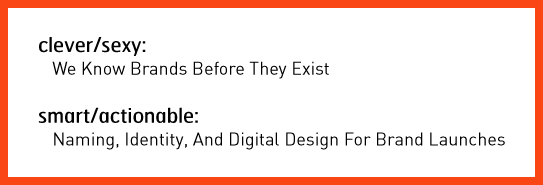
Our brand consultancy nearly launched with the tagline “We know brands before they exist” (which I felt was clever), but decided to hold off and use it only in company presentations instead. As our offering is highly specialized and unique, we now clearly spell out what we are in business for: “Naming, Identity, and Digital Design for Brand Launches.” It enables us to immediately set expectations with our target audience whereas a clever tagline would have been just another piece leading to the actual answer your target is seeking: What is this new brand doing exactly and is it what I am in the market for?
An additional startup benefit? If you choose the descriptor path, there is no need to get overly creative; just clearly spell out what your brand delivers to its user in the simplest, shortest way possible. It’s not sexy, but they will be grateful, and so will you when looking at your incoming leads.
CATEGORIES: Blog Your Brand Launch: Brand Strategy


